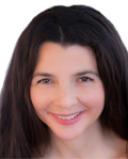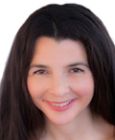
Health
Teaching Doctors, Empowering Ourselves
How doctors and patients can learn from one another.
Posted November 22, 2010
Five years ago, face blindness was still thought by many, even in the medical community, to be an extremely rare disorder. We now know face blindness is not rare at all: face blindness affects, to some degree, one out of fifty. But it's going to take awhile for all the doctors in all the towns to hear the news. What we can know about the brain has exploded in recent years. There is an enormous amount of information available and it's simply not possible to keep up. The practitioners most of us see are generalists; it takes awhile to connect with the proper specialist, and maybe that is not always a crisis?
It was up to me to figure out face blindness, to know it for what it was, and then teach those around me. This process of explaining something difficult and confusing has made me stronger and clearer. Not being believed by powerful medical professionals, but still moving forward, trusting my perception, sticking to what I knew-it's had, for me incredibly salubruious effects. There is no cure for face blindness, but there is, in managing to live with it, an incredibly valuable opportunity to build a visibly stronger self. I became the expert I needed. What could be more empowering?
Is there a lesson here--doctors and therapists, listen to your patients? Maybe not. Maybe they are listening.. In an ideal world, we patients would truly know what was wrong, and our self-diagnoses would be uncannily accurate, time-saving, and elegant. Our web printouts would be useful, on target, and welcome. There'd be time for our stories, room for our anxieties and fears. There'd be doctoral humility and true collaboration.
But my local caregivers are generalists. They know a little about a lot. They mean well, but they're on the front lines. Many of us with strange diagnostic theories are actually wrong. If there is a lesson here, it's this: we need to respect how hard it is to know.
I have been teaching at the college level for twenty years. There is so much I do not know-more, every year. So many new books and articles, the internet explosion, plus graphic novels and video forms of story telling, and Google map essays. Every day, thousands more amazing innovations in my field. It's completely impossible for me to keep up. I do my best. I teach the authors I know well-Hemingway, Fitzgerald, Raymond Carver, Lorrie Moore. I attend conferences, take classes. I do my absolute best to be an excellent teacher. I care deeply about my students but I make mistakes, miss the obvious, on a daily basis. So I can't blame my local doctors, my own therapist, for not knowing the cutting edge science in every single subfield of psychology, neurology, and vision science. Diagnosis is a learning process, a collaboration between doctor and patient. Like any relationship, the diagnostic one is a human process, with bumps and flaws and weirdness and difficulty. It's messy. But for me, doctor-blaming wastes energy I could spend on learning.
It's not my neurologist's job to explain face blindness to lay people. Turns out that's my job. Instead of faulting others for not being helpful, for not knowing, I get to teach. It's what I was born to do. Blaming doctors for not knowing would be like blaming my students for their poor grammar, poor organization skills, their tortured prose. I can't recognize faces. But I do recognize teaching opportunities. And that's how things come into focus-learning. And, patiently, kindly, sharing what we know.

